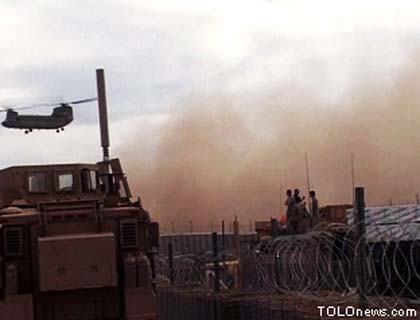HERAT CITY - The Iranian consul general in western Herat province on Sunday said the proposed permanent US military bases could further deteriorate Afghanistan's security situation.
Addressing a news conference on recent developments in the strategic cooperation deal between Afghanistan and the United States, Rahim Mohammadi Yakta said foreigners had failed to bring peace to Afghanistan over the past 10 years.
"When 200,000 combat foreign troops cannot bring peace and stability to Afghanistan, how it is possible by establishing two or three bases," he asked. "The bases will encourage one group against another and as permanent sources of insecurity," he warned.
Yakta suggested instead of attaching expectations to others, Afghans should come forward and find solutions to their own problems.
Safeguarding Afghanistan's national interests, an end to nighttime military operations, strict restrictions on international soldiers to avoid harming civilians and legalizing their presence are some of the core conditions set by the government for signing the agreement with the US.
Karzai has said the government had received a draft of the agreement from the US and it would be sent back to the US with approval from the Parliament after being discussed by the Loya Jirga, which is called into session on November 16.
On September 13, Karzai's national security advisor told lawmakers the US might set up military bases in Afghanistan after the accord was signed between the two countries.
Testifying before senators after his return from a visit to the US, he said the pact would not be inked unless approved by Parliament.
Senior US officials evinced no interest in having permanent bases in Afghanistan during the three meetings he held with them, Spanta said. But to train and assist Afghan forces, Americans might establish military centers in the country, he indicated.
Night raids and US-controlled jails posed a key hurdle to the agreement, Spanta pointed out. "Our objective is to establish a government based on rule of law and will not allow anyone to run a parallel set-up."
"Concerns of our neighbors (about the agreement) are genuine, but we will not allow our soil to be used against them," Spanta promised. However, he stressed neighbors reserved no right to interfere in Afghanistan's internal affairs.

